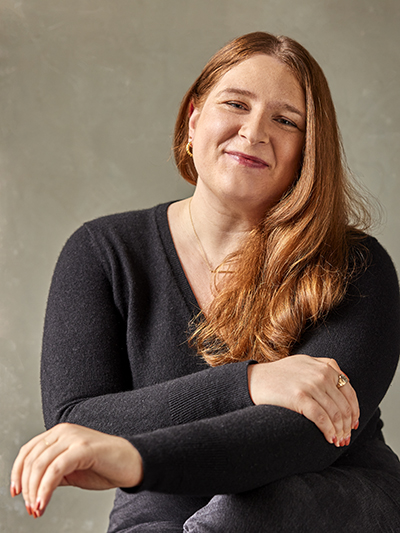Allison Brooks-Conrad is a PhD candidate in historical musicology at the University of Pennsylvania. Her research examines the intersection of gender, labor, and socialist policy in different scenes of musical production in the Soviet Union. More specifically, she asks how women living in the Soviet cities of Tallinn, Estonia; Tbilisi, Georgia; and Riga, Latvia, used music and sound in their attempts to conform to and diverge from Soviet state policy, social expectations, and gender roles during the late Socialist era. Other areas of interest include musical production, circulation, and political action in Soviet-occupied Estonia, and Eastern European state socialisms and musical inscription. Her research has been supported by the Association for Slavic, East European, and Eurasian Studies Stephen F. Cohen-Robert C. Tucker Dissertation Research Fellowship. Allison holds a Bachelor of Music in cello performance and a Bachelor of Arts in history from Lawrence University and Conservatory.
Allison Brooks-Conrad
Wolf Humanities Center Doctoral Fellow
2023—2024 Forum on Revolution
Allison Brooks-Conrad
Ph.D. Candidate, Historical Musicology
The Sounds of Soviet Femininity: Socialist Expectations for Women’s Labor and Music in Soviet Tallinn, Tbilisi, and Riga (1970-1991)
My dissertation investigates how women living in the Soviet cities of Tallinn, Estonia; Tbilisi, Georgia; and Riga, Latvia used music in their attempts to conform to and diverge from Soviet state policy, social expectations, and gender roles during the late socialist era in the Soviet Union. Using archival research, musical analysis, and oral history, I study how women relied on music to perform a version of Soviet femininity and to create space for self-expression beyond the state’s view. Conducting research in Tallinn, Tbilisi, and Riga, I examine how women’s musical experiences were inflected by questions of ethnicity, nationality, and culture in the Soviet Union, accelerating the Soviet system’s slow erosion. I also analyze recent musical compositions by contemporary female musicians and composers living in the former Soviet Union to study how their experiences have been informed by the legacy of Soviet womanhood and how that legacy is expressed musically. The resulting project combines methods and approaches from Slavic studies, Soviet history, and historical musicology.



